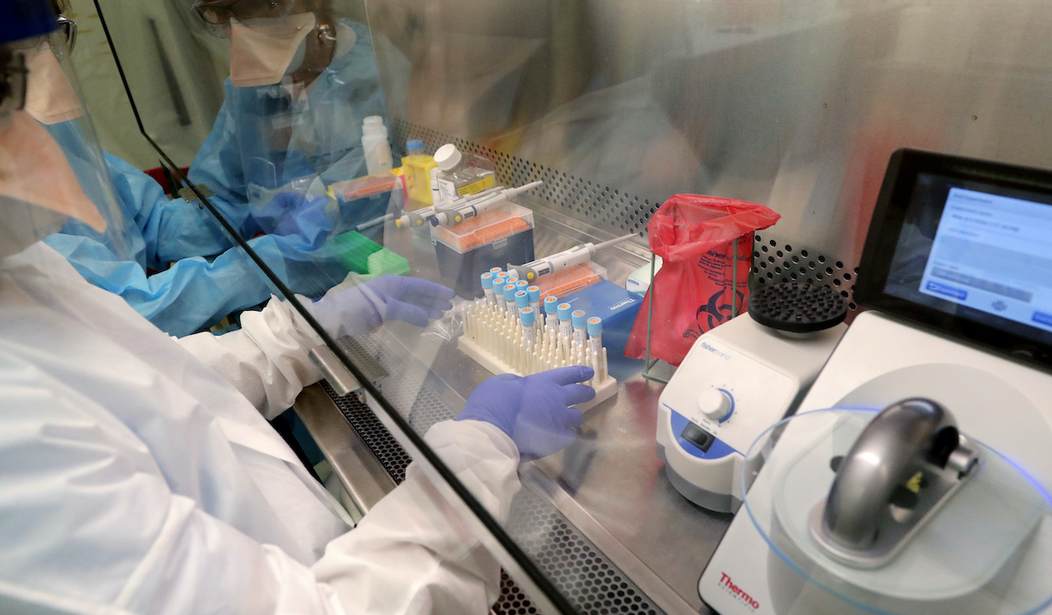As a gesture of goodwill, President Biden recently announced that the U.S. will be shipping 20 million COVID-19 vaccine doses to other countries. This altruistic policy not only puts American values on full display but is also a testament to the strength of American pharmaceutical innovation. It is no coincidence that the U.S. has robust intellectual property (IP) protections and was the first out of the gate to have a COVID-19 vaccine ready. Unfortunately, these strong IP safeguards may be on the chopping block. The Biden administration’s recent decision to support an IP protections waiver for COVID-19 drugs is a significant step backward in preparing for the next pandemic and will throttle future drug and intellectual property innovations.
Countries in the developing world are struggling mightily to beat back COVID-19 and the leading vaccine companies are taking several, voluntary steps to meet those needs. Yet some might wonder why American medical breakthroughs are also needed in many wealthier, first-world democracies. It would seem reasonable to assume that these countries could leverage the same market forces to spur similar innovation and incentivize domestic drug makers to boost production and accelerate research and development (R&D) efforts.
Unfortunately, healthcare is a different ballgame. Unlike many sectors in which government regulation, or lack thereof, tends to be pretty consistent from country to country, healthcare stands alone. Many governments fall prey to the “one size fits all” mentality. They use the heavy hand of government to pass sweeping restrictions on drug pricing and access to treatments under the misguided notion that government control is better for patients and more efficient than market-oriented solutions.
The problem with this approach is that, as a monopoly, the government has no incentive to diversify its approach to cater to different patients and no competition spurring it to invest more heavily in R&D. To address such shortcomings, a private company might turn to capital markets to raise funds for expanding operations. But the federal government doesn’t have this tool in its arsenal.
Recommended
To pay for vaccines (treatments or other medicines that it intends to offer citizens), the government must use taxpayer dollars, making cost control, not innovation, its most important consideration. This means restricting the drugs available to patients, drastically reducing cutting-edge R&D and decreasing spending on vulnerable seniors.
Fortunately, the United States is the last major bastion against these dangerous price control policies. Patients in the U.S. can be treated for far more conditions and have access to more medicines than patients anywhere else. The free-market system in the U.S. supports competition and incentives that allocate taxpayer dollars more efficiently and spur the kind of world-changing innovation we have already witnessed during COVID-19. While far from perfect, the private sector is robust and incentivized to pursue groundbreaking cures for new viruses, rare conditions, and thousands of other treatments that patients depend on.
Predictably, every few years, the fight to defend this system begins anew. Left-of-center lawmakers trot out price controls and interventionist proposals that would transform American healthcare into just another ineffective federal failure. This year, this fight comes in the form of H.R. 3, partisan legislation that already failed two years ago.
Price caps will skew the market, meaning companies who cannot recoup investment costs will produce fewer drugs and shrink R&D budgets. “Negotiation” will allow the government to leverage its purchasing power to steeply penalize companies who choose to withhold drugs they cannot afford to sell at certain levels. The ripple effect up the supply chain would ensure longer lines for medicines, fewer new cures and reduced access across the healthcare ecosystem.
While far from perfect, our current system is the only one with a proven track record that can boost of widespread access to treatments and medicines when needed. And there are good proposals out there that could build on this system in more effective ways. For example, H.R. 19 is a bipartisan bill which would save patients more at the pharmacy counter by streamlining discounts and reducing the role of middlemen. It would also increase transparency and cut bureaucratic red tape to increase efficiencies in the healthcare system. If COVID-19 has taught the country anything, it is that the best role for government is that of supporting private sector experts who can work quickly and effectively under the right conditions.
If lawmakers fall for onerous price controls, even America will struggle with public health crises that pale in comparison to COVID-19. Patients will lose access to the best healthcare system in the world, and the long-term costs of an unhealthier population will far outweigh whatever temporary spending reprieve price controls might bring. The fight to defend innovation and stand up to government intervention is more important now than ever. Millions of lives depend on it.
David Williams is the president of the Taxpayers Protection Alliance.

























Join the conversation as a VIP Member